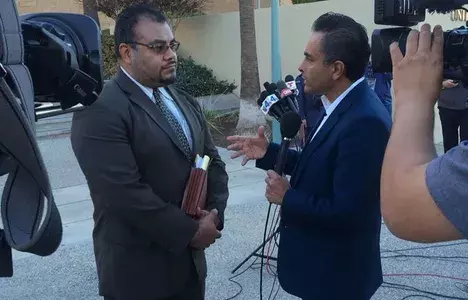
Thank you for choosing us for your legal needs.
We are dedicated to providing each of our clients with efficient and cost-effective legal
services based on our years of experience. Our firm serves clients from all areas of
California.
Contacting an attorney can be stressful -- we understand that. But we genuinely care about
you and your case. If we cannot give your case the attention it deserves, we will tell you so.
We will not take your case unless we feel we can devote the time and resources necessary to
attend to it properly. You will be in contact with your attorney directly throughout your
case.
Your first meeting with Mr. Castillo will provide you with valuable advice to help steer you
in making an informed decision about how to proceed in your matter. Call us at (626) 331-
2327 to schedule your first meeting (available through telephone, zoom or in-person). Most
cases qualify for a free initial consultation.
